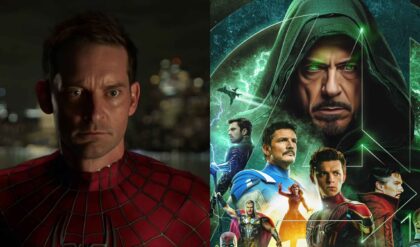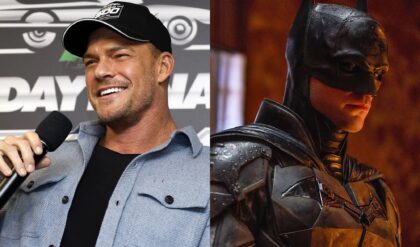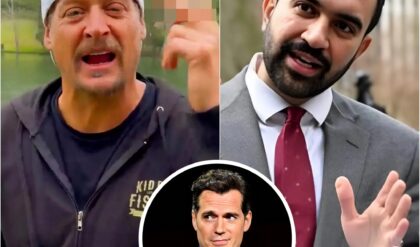In the gritty underbelly of Los Angeles crime fiction, where shadows cast long over rain-slicked streets and justice teeters on the edge of a razor blade, few revelations hit harder than a family secret buried in the files of the LAPD. Imagine this: the relentless homicide detective Harry Bosch, a man who lives by the mantra “Everybody counts or nobody counts,” sharing DNA with Mickey Haller, the slick, fast-talking defense attorney known as the Lincoln Lawyer. These two titans of the courtroom and the crime scene—polar opposites in approach, philosophy, and style—aren’t just reluctant allies. They’re half-brothers, bound by the ghost of a philandering father neither truly knew. This bombshell, dropped unceremoniously in Michael Connelly’s 2008 novel The Brass Verdict, didn’t just ripple through the pages of one book. It reshaped an entire literary universe, blending two powerhouse series into a sprawling saga of blood ties, moral ambiguity, and unbreakable sibling tension. For fans, it was the plot twist that redefined loyalty, forcing us to question everything we thought we knew about these flawed heroes. Buckle up—this is the story of the brothers who changed crime fiction forever.
To appreciate the seismic shock of this revelation, you have to step back into the worlds each man inhabits. Harry Bosch first stormed onto the scene in Connelly’s 1992 debut, The Black Echo, a Vietnam vet turned LAPD detective with a chip on his shoulder the size of the Hollywood Hills. Bosch is the archetype of the hard-boiled cop: chain-smoking, jazz-obsessed, and haunted by the ghosts of war and his own orphaned childhood. Raised in foster homes after his mother, a sex worker named Marjorie Phillips Lower, was murdered when he was just a kid, Bosch channels his rage into an unyielding pursuit of truth. He’s the guy who bends rules like they’re pretzels, who’ll stake out a suspect for days on a hunch, and who views the law not as a shield but as a tool to hammer home justice. Over more than two dozen novels, Bosch evolves from a lone wolf to a grizzled veteran, retiring from the force only to pivot into private investigation, all while grappling with a daughter who’s smarter than he ever was and a conscience that won’t quit. His stories are pulse-pounding procedurals laced with philosophical depth—explorations of power, corruption, and the human cost of violence in a city that chews up dreamers and spits out the broken.
Contrast that with Mickey Haller, the charismatic counterpoint who rolled up in a chauffeured Lincoln Town Car in 2005’s The Lincoln Lawyer. Haller operates on the flip side of the badge, a defense attorney who thrives in the chaos of courtrooms, turning the prosecution’s case inside out with razor-sharp cross-examinations and a Rolodex of shady informants. Born to privilege—his father was the legendary J. Michael Haller Sr., a powerhouse lawyer in L.A.’s legal elite—Mickey grew up idolizing the man but inheriting his wanderlust for the law’s gray areas. Divorced multiple times, with a daughter who’s his moral compass, Haller works out of the back of his car, handling low-rent clients by day and high-stakes cases by night. He’s got the wit of a stand-up comic crossed with the cunning of a street hustler, always one step ahead of the DA but forever dancing on the ethical tightrope. His series pulses with legal intrigue, from wrongful convictions to corporate cover-ups, but it’s the personal stakes—his brushes with death, his tangled family life—that make him as vulnerable as he is victorious.
On the surface, Bosch and Haller couldn’t be more different. One enforces the law with fists and files; the other dismantles it with words and loopholes. Bosch sees defense attorneys like Haller as enablers of the guilty, while Haller views cops like Bosch as blunt instruments blind to nuance. Their paths might cross in the sterile halls of the LAPD or the overheated frenzy of a trial, but a blood connection? That’s the stuff of soap operas, not Connelly’s meticulously plotted thrillers. Yet, when The Brass Verdict lands that gut-punch twist, it feels inevitable in hindsight—like the author had been planting seeds in the soil of his shared universe all along.
The book opens with a bang: Jerry Vincent, a prominent defense attorney, is gunned down in his parking garage, leaving behind a caseload of unfinished business. Enter Mickey Haller, fresh off his own near-fatal shooting from the previous novel, who’s court-ordered to inherit Vincent’s entire practice. Among the files is the defense of Walter Elliott, a Hollywood producer accused of murdering his wife and her lover in a jealous rage. It’s a media circus of a case, the kind that could make or break a lawyer’s career. As Haller dives in, piecing together alibis and motives, he collides head-on with Harry Bosch, who’s leading the investigation into Vincent’s murder. The two men spar like oil and water—Bosch suspicious of Haller’s motives, Haller wary of the detective’s bulldog tactics. Clues pile up: a rigged jury, a shadowy fixer pulling strings from the shadows, and whispers of a conspiracy that reaches into the heart of L.A.’s power brokers.
But the real killer twist isn’t in the courtroom drama or the chase scenes—it’s in a quiet moment of genealogy. As Haller pores over Vincent’s files, he stumbles on echoes of his own past. Old photos, faded documents, a name that rings a distant bell: J. Michael Haller Sr. Bosch, meanwhile, has long carried the weight of his illegitimacy, knowing only that his mother had a fling with a lawyer who vanished from her life before he was born. The pieces click for Haller late in the book, during a tense confrontation. He sees the physical resemblances—the sharp jawline, the piercing eyes—and connects the dots to stories his father told in rare, boozy confessions. Bosch was born in 1950, the product of a passionate affair between Marjorie Lower and the elder Haller, who was already married and building his legal empire. Nine years later, in 1958, Mickey arrived, the legitimate son in a family that prized appearances above all. Their father died when Mickey was young, leaving behind a legacy of triumphs and scandals, but never a hint of the bastard son from a long-ago indiscretion.
The revelation hits like a suppressed nine-millimeter: Bosch and Haller, strangers turned adversaries, are flesh and blood. No dramatic reunion scene, no tearful embrace—just a stunned acknowledgment over coffee in a dingy diner, the weight of unspoken years hanging between them. For Bosch, it’s validation of his rootless life; for Haller, it’s a mirror reflecting his own privileges. Connelly doesn’t milk the melodrama; he lets it simmer, using the brothers’ shared heritage as fuel for future fires. Readers closed The Brass Verdict with jaws on the floor, not just because of the killer’s identity (spoiler: it’s a doozy tied to the Elliott case), but because Connelly had retroactively rewritten their understanding of two beloved series.
The fallout? Oh, it’s deliciously complicated. In the years since, Connelly has woven this sibling bond into the fabric of his bibliography, creating a “Connellyverse” where crossovers aren’t cameos—they’re collisions that spark new conflicts and unlikely alliances. Take The Reversal (2010), where Haller switches sides to prosecute a child murderer, enlisting Bosch as his investigator. The brothers bicker over strategy—Bosch wants to bulldoze witnesses, Haller prefers finesse—but their dynamic crackles with the undercurrent of family loyalty. It’s a role reversal that highlights their differences: the cop who hates lawyers now backing one in the unforgiving arena of prosecution.
By The Crossing (2015), the gloves are off. Bosch, semi-retired and restless, teams with Haller to exonerate a young Latino accused of killing a prominent attorney. Here, the half-brother angle deepens; Bosch sees echoes of his own street-kid youth in the suspect, while Haller navigates the racial biases baked into L.A.’s justice system. Their banter—Bosch’s gruff sarcasm clashing with Haller’s lawyerly quips—feels like sibling ribbing, laced with the tension of men who missed out on holidays and heart-to-hearts. Later entries like The Gods of Guilt (2013) and The Law of Innocence (2020) pull them into each other’s orbits again, with Bosch bailing Haller out of jams and Haller pulling strings to shield his brother’s investigations. The pinnacle comes in 2023’s Resurrection Walk, where a retired Bosch goes full PI for Haller, probing a wrongful conviction of a woman accused of murdering her cop ex-husband. Amid drone surveillance and deepfakes, the brothers confront not just a frame job but the fraying trust between law enforcement and the defense bar—a metaphor for their own prickly partnership.
Fans couldn’t get enough. When The Brass Verdict hit shelves, online forums lit up like a crime scene. “I had to reread the last chapter three times,” one reader confessed on a long-defunct message board. “Bosch and Haller? Brothers? It’s genius—explains why they’re both so damn stubborn.” Reddit threads from the era (and even today, in reread communities) buzz with awe at Connelly’s sleight of hand. “It retrofits the entire series,” a devotee posted in 2019. “All those times Bosch rails against defense attorneys? Now it’s personal.” The twist amplified the emotional stakes; what was once professional antagonism became fraternal friction, making victories sweeter and failures gut-wrenching. Women readers, in particular, raved about the added layer of vulnerability—two alpha males forced to lean on each other, exposing cracks in their armor. And for newcomers discovering the books out of order (guilty as charged for many), the reveal doubles as a gateway drug, propelling them to devour both series in a frantic binge.
This half-brother bombshell didn’t just thrill readers; it supercharged Connelly’s empire. Before 2008, the Bosch and Haller lines ran parallel, occasionally nodding across the divide. Post-revelation, they merged into a hydra-headed beast, with over 30 novels forming a interconnected web. It allowed Connelly to explore themes of legacy and inheritance in fresh ways: How does a father’s sins echo in his sons? Can blood redeem or just complicate the quest for justice? The ripple effects extended to TV, where Amazon’s Bosch (starring Titus Welliver as the laconic detective) and Netflix’s The Lincoln Lawyer (Manuel Garcia-Rulfo as the suave solicitor) nod to the books’ kinship without fully committing to crossovers—yet. Whispers of a shared spin-off swirl, fueled by the 2025 anniversary buzz around The Lincoln Lawyer‘s 20th year. Connelly himself has teased in interviews how the brothers’ DNA lets him play with moral relativism: Bosch’s black-and-white worldview clashing with Haller’s shades of gray, all under the umbrella of family obligation.
But the true genius lies in the restraint. Connelly never lets the twist overshadow the crimes. The brothers don’t hug it out or form a buddy-cop duo; their relationship is a slow burn, marked by awkward silences, grudging respect, and the occasional save-your-ass intervention. In Resurrection Walk, for instance, Bosch’s health falters—age catching up to the old warhorse—while Haller juggles his own legal woes. Their collaboration feels earned, a testament to bonds forged in fire rather than blood alone. It’s this subtlety that elevates the fallout from gimmick to cornerstone, turning potential soap into Shakespearean tragedy lite.
Seventeen years on, the shock of Bosch and Haller as half-brothers endures because it taps into something primal: the surprise of hidden family, the ache of what-ifs. In a genre crowded with serial killers and conspiracies, Connelly dared to make the personal the plot driver, proving that the biggest mysteries aren’t in the evidence locker but in the rearview mirror of our own lives. For fans old and new, the fallout isn’t destruction—it’s resurrection. It invites us to revisit the streets of L.A. with fresh eyes, wondering who else lurks in the shadows of our favorite stories. Are you ready? The case is still open, and these brothers aren’t done fighting yet.





